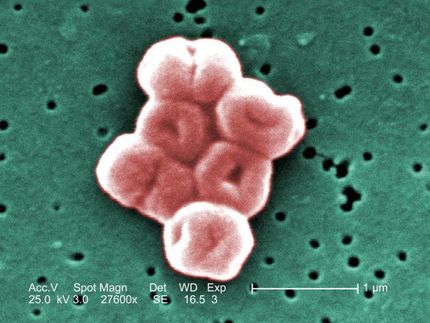Symcel secures €3.6 million Horizon 2020 Phase II grant
Multi-resistant bacterial sepsis infections to be validated utilising sensitive screening technology
Symcel, the company behind the revolutionary cell-based assay tool for real-time cell metabolism measurements, calScreener™, has secured €3.572 million Horizon 2020 funding to support the company’s evaluation of improved combination testing of antibiotics against extensively drug-resistant bacteria in sepsis patients. The project runs over 28 months with a consortium of internationally recognized academic and clinical key opinion leaders from Karolinska Institutet (Stockholm, Sweden), Hospital Universitario Ramón y Cajal (Madrid, Spain), Careggi University Hospital (Florence, Italy), Rigshospitalet (Copenhagen, Denmark), IHE (Lund, Sweden) and Symcel.
Antimicrobial resistance is increasing rapidly – often causing infections that are extremely difficult to treat and for which no single antibiotic has an effect. Conventional reference methods are outdated, slow and unsuitable to use against the new threat of hetero- and extensively drug-resistant (XDR) bacteria. Symcel´s screening technology will be validated as a new surrogate method to correctly and rapidly determine which antibiotics really work against multi-resistant bacteria. At the core of this problem is the unique possibility to evaluate combinations of antibiotics against XDR bacteria in the calScreener for synergistic effects. AsWHO recently reported*, the world is running out of antibiotics – creating an immediate need for testing combinations of existing antibiotics against multi-resistant bacteria. At present, there is no clinically validated solution available, for multiple antibiotic resistance determination. calScreener may offer a potentially game-changing new reference method that provides the answer.
Jesper Ericsson, CEO of Symcel commented: “the spread of multi-resistant bacteria is one the most severe risks globally to human health. The world is on the cusp of a post-antibiotic era where the healthcare community faces certain harmful bacteria that are resistant to all known drugs. Consequently, little can be done to treat the critically ill patients concerned. There is a large unmet need for a technology like calScreener that measures the metabolism of bacteria. The only way to really be sure an antibiotic is effective in killing bacteria. The prospective clinical validation is a great opportunity for Symcel.”
Christian Giske, Deputy Head of Microbiology at Dep. of Laboratory Medicine at Karolinska Institutet andHead Physician of Bacteriology at Karolinska University Hospital, commented: “I am pleased to be part of the consortium on this exciting project. With increasing antimicrobial resistance, more individualized solutions with rapid and accurate quantitative measurements are needed as well as predicting the effects of combination therapy.”
Magnus Jansson, CSO of Symcel added: “The goal is to provide a diagnostic tool with high speed, specificity, and sensitivity in a smartly designed and packaged device with the tools available to perform multiple antibiotic susceptibility testing in a hospital setting.”
There is a large unmet need across the international healthcare community to handle and reduce antimicrobial resistance and a successful clinical validation of calScreenerTM in the Horizon 2020 project will significantly support this.
Most read news
Other news from the department science

Get the life science industry in your inbox
By submitting this form you agree that LUMITOS AG will send you the newsletter(s) selected above by email. Your data will not be passed on to third parties. Your data will be stored and processed in accordance with our data protection regulations. LUMITOS may contact you by email for the purpose of advertising or market and opinion surveys. You can revoke your consent at any time without giving reasons to LUMITOS AG, Ernst-Augustin-Str. 2, 12489 Berlin, Germany or by e-mail at revoke@lumitos.com with effect for the future. In addition, each email contains a link to unsubscribe from the corresponding newsletter.






















































